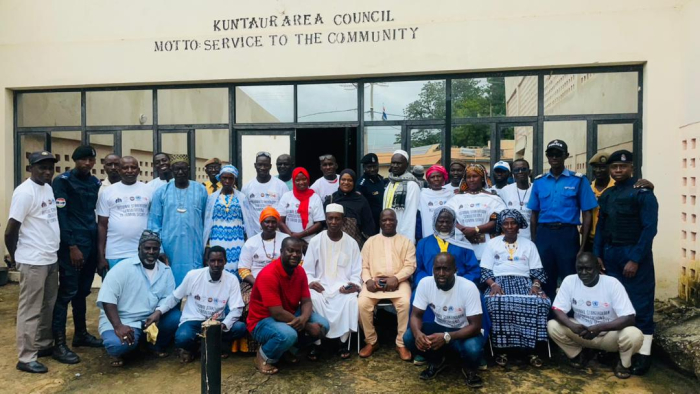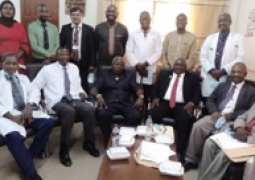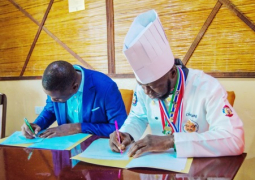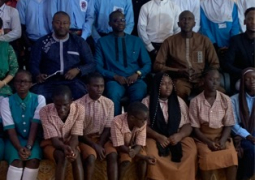
This regional consultation was aimed at building the capacities of policy makers and members of local government decentralised structures on human security approach to development.
Held on theme: “Human Security: A Catalyst for Inclusive Development’, it was implemented from 10 to13th October, 2024 in the four (4) Administrative Regions of Basse, Janjanbureh, Kuntaur & Mansakonko.
In furtherance of this, a day’s consultation session was convened in each of the four (4) regions, which attracted over 160 participants from local government leaders, civil society organisations, community representatives, regional authorities’ women and youth leaders and People Living With Disabilities.
Outlining the rationale behind the event in Kuntaur, Niani District, Ansumana Ceesay, programme Manager at the National Council for Civic Education (NCCE), revealed that the consultation would also provide participants with a unique opportunity to engage in meaningful dialogue, share experiences and collaborate on strategies that prioritise human security at the regional level
Ceesay reminded that human security is a vital concept that emphasises the protection of individuals and communities from threats, ensuring that everyone can live free from fear and want.
“It is about addressing the threats that affect the daily lives of people, whether economic insecurity, health risks, environmental challenges, personal safety, or political instability.”
He, however added that these issues are complex and inter-connected and is something that requires joint action and innovative approaches that transcend sectors and regions.
“In today’s world where we face complex challenge, our collective efforts in addressing these issues are more crucial than ever.”
Ceesay indicated that the consultation was not just a platform for discussion, as it was a space for collective action.
“The insights, recommendations, and partnerships forged will form the foundation for stronger policies and practices that put human security at the heart of regional planning and governance.”
In Kuntaur
The deputy Governor Hon. Sainey Mbaye encouraged the regional representatives to fully participate in enhancing their thorough understanding on cross-cutting issues linked to human security, which he said, is beyond normal traditional security systems.
He equally challenged them to integrate it into their daily work.
In Basse
The vice chairman of Basse Area Council, Mr. Abubacarr Danjo, emphasised the need for more public awareness raising on human security and its impact on the daily lives of people, national development and security.
He called for action from stakeholders to collaborate in addressing any regional human security concerns.
Mr. Ebrima Dibba, a Police Officer stationed in Basse, underscored the need to bridge knowledge gaps on human security.
He highlighted the importance of increasing stakeholders’ engagements including the grassroots to foster understanding and promote inclusive participation.
Jasong Sanyang, National Human Rights Commission Legal officer in North Bank Region, pointed out that rights protection and fulfilment would remain an illusion without adopting the various approaches to mainstreaming human security in the development of people and communities.
Awa Busso, regional officer at the National Environment Agency in Kerewan, said human security and environmental protection are interconnected.
Environment protection, she added, plays a crucial role in ensuring human security by maintaining natural systems to enhance lives and livelihoods.
“When the environment is protected this will enable individuals to be secured and help to combat the effect of climate change.”
Alhagie Ansumana Kanagi, Chief for Jarra East, expressed gratitude to the NCCE for the initiative.
Chief Kanagi therefore, reiterated that a person's home, community, region, and country are the first points of human security.
“Each and every human security initiative must begin at home so that it can spread throughout the community, then to the regional and national levels.”





